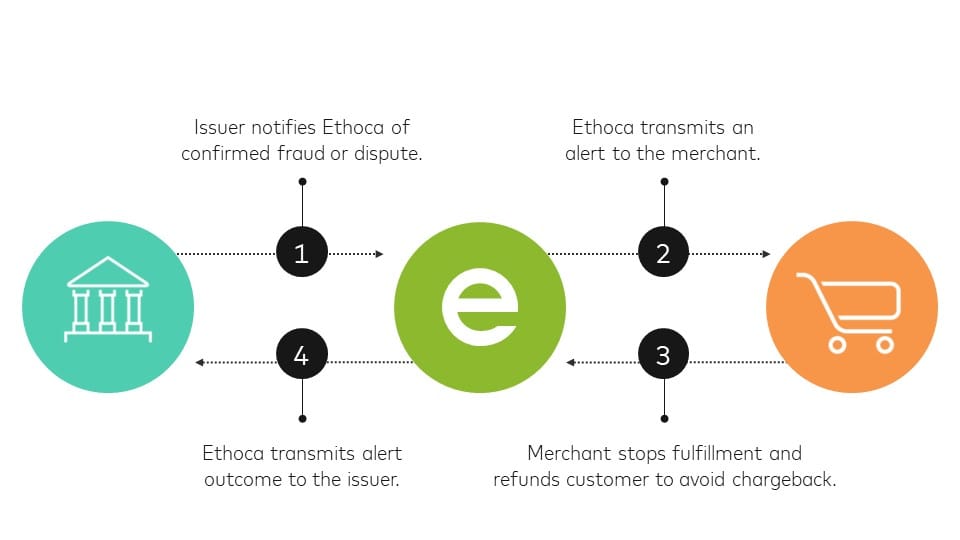
SuperPay helps alternative medicine professionals like yourself get paid as quickly as possible. Choose our platform to power your payments & billing.
Alternative medicine practices have become increasingly popular in recent years, as more people seek holistic and natural approaches to their health and well-being. These practices, which include acupuncture, herbal medicine, and chiropractic care, among others, offer alternative solutions to traditional medical treatments. However, like any healthcare practice, it is crucial for alternative medicine providers to track and measure their performance to ensure quality care and sustainable growth.
Understanding Key Performance Indicators (KPIs) is essential for any business, and alternative medicine practices are no exception. KPIs are measurable values that reflect the success and effectiveness of an organization's activities. They provide valuable insights into various aspects of the practice, including patient satisfaction, treatment success rates, and financial performance.
The significance of KPIs in alternative medicine practices cannot be overstated. In healthcare, performance measurement plays a vital role in identifying areas of improvement, optimizing resource allocation, and ensuring the delivery of high-quality care. By implementing KPIs, alternative medicine practices can gain a comprehensive understanding of their performance and make data-driven decisions to enhance patient outcomes.
One of the primary reasons why alternative medicine practices need KPIs is to gauge patient satisfaction. Patient satisfaction rate is a crucial KPI as it reflects the level of care and service provided by the practice. Additionally, tracking treatment success rates helps practitioners evaluate the effectiveness of their therapies and identify areas for improvement.
Furthermore, KPIs such as the number of new patients and retention rate provide insights into the practice's growth and patient loyalty. These metrics help practitioners understand the effectiveness of their marketing efforts and patient referral programs. Additionally, monitoring the average revenue per patient allows practices to assess their financial performance and identify opportunities for revenue growth.
Tracking and measuring KPIs in alternative medicine practices can be achieved through various methods. The use of Electronic Health Records (EHR) and Practice Management Software enables practitioners to collect and analyze patient data efficiently. Patient surveys and feedback are also valuable tools for obtaining insights into patient experiences and satisfaction.
Regular review and analysis of data are essential for monitoring KPIs effectively. By consistently reviewing performance metrics, alternative medicine practices can identify trends, set goals, and make informed decisions to improve their practice's performance.
Improving KPIs for better practice performance requires a proactive approach. Benchmarking against industry standards and setting realistic goals can help practices strive for continual improvement. Additionally, investing in training and development for staff members ensures they have the necessary skills and knowledge to provide quality care.
In conclusion, KPIs play a vital role in alternative medicine practices by providing valuable insights into various aspects of the practice's performance. By tracking and measuring KPIs such as patient satisfaction rate, treatment success rate, and financial performance, alternative medicine practices can enhance patient outcomes, drive growth, and ensure the delivery of high-quality care.
Understanding KPIs: An Introduction
Key Performance Indicators (KPIs) are measurable values that indicate the success and effectiveness of an organization's activities. They serve as a tool to track and evaluate performance, providing valuable insights into various aspects of a business. In the context of alternative medicine practices, understanding KPIs is crucial for assessing the overall performance and success of the practice.
KPIs act as performance benchmarks, allowing practitioners to measure their progress towards specific goals and objectives. They provide a clear picture of how well the practice is performing in key areas such as patient satisfaction, treatment success rates, patient acquisition, retention, and financial performance.
By tracking and analyzing KPIs, alternative medicine practitioners can identify strengths and weaknesses within their practice. This allows them to make data-driven decisions and implement strategies to improve overall performance. KPIs also provide a means of evaluating the effectiveness of any changes or initiatives undertaken by the practice.
It is important to note that KPIs should be specific, measurable, attainable, relevant, and time-bound (SMART). This ensures that the chosen indicators are meaningful and can be effectively tracked and measured. Additionally, it is essential to align KPIs with the practice's overall goals and objectives to drive performance and success.
Alternative medicine practices can benefit from a wide range of KPIs, depending on their specific focus and services provided. These indicators can help practitioners assess the quality of care, patient satisfaction, financial performance, and growth potential of their practice.
Overall, understanding KPIs is fundamental for alternative medicine practitioners to monitor and evaluate their practice's performance. By utilizing these indicators effectively, practitioners can identify areas for improvement, enhance patient outcomes, and ensure the long-term success of their alternative medicine practice.
Significance of KPIs in Alternative Medicine Practices
Alternative medicine practices, like any other healthcare organization, can greatly benefit from the use of Key Performance Indicators (KPIs). These indicators play a significant role in measuring and evaluating the performance of the practice, guiding decision-making processes, and driving continuous improvement. Understanding the significance of KPIs in alternative medicine practices is crucial for practitioners to effectively monitor and enhance their practice's performance.
Importance of Performance Measurement in Healthcare
Performance measurement is a fundamental aspect of the healthcare industry. It allows practitioners to assess the quality of care provided, identify areas for improvement, and ensure patient satisfaction. By measuring performance, alternative medicine practices can track their progress, set goals, and make data-driven decisions to enhance patient outcomes.
Why Alternative Medicine Practices Need KPIs
Alternative medicine practices face unique challenges and opportunities compared to traditional medical practices. Implementing KPIs allows these practices to gauge their performance, identify areas of strength and weakness, and make informed decisions to improve their overall effectiveness. KPIs provide a clear framework for setting goals, tracking progress, and evaluating success in the context of alternative medicine.
The Role of KPIs in Quality Improvement
Quality improvement is a core objective for any healthcare practice, including alternative medicine. KPIs enable practitioners to assess the quality of care provided, measure patient satisfaction, and identify areas for improvement. By tracking relevant KPIs, alternative medicine practices can streamline processes, enhance patient experiences, and ensure the delivery of high-quality care.
In addition to these general reasons, there are several specific benefits of using KPIs in alternative medicine practices:
Identifying Effective Treatment Modalities:By tracking treatment success rates, alternative medicine practitioners can evaluate the effectiveness of different therapies and modalities. This allows them to focus on those treatments that yield the best results for their patients.
Optimizing Resource Allocation:KPIs related to patient flow, appointment scheduling, and resource utilization help alternative medicine practices optimize their operations. By identifying bottlenecks and areas of inefficiency, practitioners can allocate resources effectively and improve overall practice performance.
Enhancing Patient Satisfaction:KPIs related to patient satisfaction provide insights into the overall patient experience and help identify areas for improvement. By monitoring patient feedback and satisfaction rates, alternative medicine practices can make targeted improvements to enhance patient satisfaction and loyalty.
Ensuring Financial Viability:KPIs related to financial performance, such as average revenue per patient and profitability, are crucial for the sustainability and growth of alternative medicine practices. By monitoring these indicators, practitioners can identify opportunities for revenue growth, cost optimization, and financial stability.
Overall, the significance of KPIs in alternative medicine practices cannot be overstated. These indicators enable practitioners to measure performance, set goals, identify areas for improvement, and ultimately enhance patient outcomes. By implementing strategic KPI tracking and analysis, alternative medicine practices can ensure the delivery of high-quality care, drive growth, and achieve long-term success.

Key KPIs for Alternative Medicine Practices
Key Performance Indicators (KPIs) are essential for alternative medicine practices to effectively measure and evaluate their performance. These indicators provide valuable insights into various aspects of the practice, allowing practitioners to track progress, identify areas for improvement, and make data-driven decisions. In the context of alternative medicine practices, several key KPIs are particularly relevant and impactful.
Patient Satisfaction Rate
Patient satisfaction is a critical factor in the success of any healthcare practice, including alternative medicine. Measuring patient satisfaction rate allows practitioners to assess the quality of care, the effectiveness of treatments, and the overall patient experience. This KPI can be measured through patient surveys, feedback forms, and online reviews. By monitoring patient satisfaction, alternative medicine practices can identify areas for improvement and enhance the overall patient experience.
Treatment Success Rate
The treatment success rate is an essential KPI for alternative medicine practices. It reflects the effectiveness of the therapies and treatments provided by the practice. By tracking the success rate of various treatments, practitioners can identify which modalities yield the best results and optimize their treatment plans accordingly. This KPI can be measured by evaluating patient outcomes, improvement in symptoms, and treatment completion rates.
Number of New Patients
The number of new patients is a fundamental KPI for alternative medicine practices. It indicates the growth potential and market demand for the practice's services. By tracking the number of new patients, practitioners can assess the effectiveness of their marketing and advertising efforts, as well as their reputation and referral networks. This KPI can be measured by tracking new patient registrations, inquiries, or referrals.
Retention Rate
Retention rate measures the ability of an alternative medicine practice to retain its existing patients over a specific period. This KPI reflects patient loyalty and satisfaction, as well as the effectiveness of ongoing treatments and follow-up care. By monitoring the retention rate, practitioners can identify areas for improvement in patient care, communication, and overall practice management. This KPI can be calculated by dividing the number of retained patients by the total number of patients during a given period.
Average Revenue Per Patient
Financial performance is a crucial aspect of any healthcare practice, including alternative medicine. Average revenue per patient measures the average amount of revenue generated by each patient. This KPI reflects the practice's ability to generate revenue, upsell additional services, and optimize pricing strategies. By tracking the average revenue per patient, practitioners can assess the financial sustainability of their practice and identify opportunities for revenue growth.
By focusing on these key KPIs, alternative medicine practices can gain valuable insights into their performance, patient satisfaction, treatment effectiveness, growth potential, and financial viability. These indicators help practitioners make informed decisions, prioritize areas for improvement, and ensure the delivery of high-quality care.
How to Track and Measure KPIs
Tracking and measuring Key Performance Indicators (KPIs) is essential for alternative medicine practices to gain insights into their performance and make informed decisions. By implementing effective tracking methods, practitioners can monitor KPIs accurately and utilize the data to drive improvement. Here are some strategies and tools to track and measure KPIs in alternative medicine practices:
Use of Electronic Health Records (EHR) and Practice Management Software
Implementing Electronic Health Records (EHR) and Practice Management Software is a crucial step in tracking and measuring KPIs. These systems allow practitioners to collect, store, and analyze patient data efficiently. EHRs provide a centralized platform for tracking patient information, treatment outcomes, and satisfaction levels. Practice Management Software enables practitioners to monitor financial performance, appointment scheduling, and resource utilization. By utilizing these tools, alternative medicine practices can streamline data collection and analysis, facilitating the tracking of relevant KPIs.
Patient Surveys and Feedback
Patient surveys and feedback are valuable tools for tracking KPIs related to patient satisfaction and treatment effectiveness. Surveys can be conducted through various methods, including online surveys, paper-based questionnaires, or email surveys. These surveys should be designed to collect specific feedback on patient experiences, treatment outcomes, and overall satisfaction. Analyzing survey responses can provide valuable insights into the practice's performance and areas for improvement. Additionally, alternative medicine practices can encourage patients to provide feedback through online review platforms or testimonials, further enhancing the ability to track and measure KPIs.
Regular Review and Analysis of Data
Regular review and analysis of data is essential to track and measure KPIs effectively. Alternative medicine practices should establish a consistent schedule for reviewing performance metrics. This can involve monthly, quarterly, or annual reviews, depending on the specific KPIs being tracked. Practitioners should analyze data trends, identify patterns, and compare current performance to previous periods. By regularly reviewing and analyzing data, alternative medicine practices can identify areas of strength and weakness, set goals for improvement, and make data-driven decisions.
Integration of Business Intelligence Tools
Business Intelligence (BI) tools can enhance the tracking and measurement of KPIs by providing advanced analytics capabilities. These tools enable alternative medicine practices to generate detailed reports, visualize data trends, and gain deeper insights into their performance. BI tools can integrate data from various sources, such as EHRs, practice management software, and patient surveys, providing a comprehensive view of practice performance. By leveraging BI tools, alternative medicine practices can track KPIs more efficiently and make data-driven decisions to drive improvement.
Collaboration and Training
Collaboration and training are crucial for effectively tracking and measuring KPIs in alternative medicine practices. It is essential to involve all staff members in the data collection and analysis process. Training programs can be implemented to ensure that staff members understand the importance of KPIs, how to collect relevant data, and how to interpret the results. By fostering a culture of data-driven decision-making and providing ongoing training, alternative medicine practices can optimize their tracking and measurement processes.
By utilizing these strategies and tools, alternative medicine practices can effectively track and measure KPIs. This enables practitioners to gain insights into their performance, identify areas for improvement, and make data-driven decisions to enhance patient outcomes and practice success.
Improving KPIs for Better Practice Performance
Improving Key Performance Indicators (KPIs) is essential for alternative medicine practices to enhance their overall performance and achieve long-term success. By focusing on continual improvement, benchmarking against industry standards, and investing in training and development, practitioners can optimize their practice's performance. Here are some strategies to improve KPIs for better practice performance:
Benchmarking and Goal Setting
Benchmarking involves comparing the performance of an alternative medicine practice against industry standards and best practices. By benchmarking KPIs such as patient satisfaction rates, treatment success rates, and financial performance, practitioners can identify areas for improvement and set realistic goals. This process allows practices to strive for continual improvement and align their performance with industry leaders. By setting specific, measurable, attainable, relevant, and time-bound (SMART) goals, alternative medicine practices can focus their efforts on driving performance and achieving desired outcomes.
Continual Improvement and Innovation
Continual improvement is a key factor in enhancing KPIs for alternative medicine practices. By fostering a culture of continuous learning and innovation, practitioners can identify opportunities for improvement and implement changes to optimize their performance. This can involve staying updated with the latest research, attending conferences and workshops, and seeking feedback from patients and staff. By continuously evaluating and refining their practices, alternative medicine practitioners can enhance patient outcomes and drive practice performance.
Training and Development
Investing in training and development for staff members is critical for improving KPIs in alternative medicine practices. Staff members play a significant role in delivering quality care and driving practice performance. By providing ongoing training and development opportunities, practitioners can ensure that staff members have the necessary skills and knowledge to excel in their roles. This can include training on new treatment modalities, communication skills, customer service, and practice management. By empowering staff with the right tools and knowledge, practitioners can improve KPIs such as patient satisfaction, treatment success rates, and overall practice efficiency.
Implementing Effective Quality Assurance Programs
Quality assurance programs are essential for improving KPIs in alternative medicine practices. These programs involve systematic monitoring and evaluation of practice processes and outcomes to ensure the delivery of high-quality care. By implementing quality assurance programs, practitioners can identify areas for improvement, address any gaps in care, and enhance patient satisfaction and treatment outcomes. This can involve regular audits, peer reviews, and adherence to clinical guidelines and best practices.
Embracing Technology and Innovation
Technology and innovation play a significant role in improving KPIs in alternative medicine practices. Implementing electronic health records, practice management software, and telehealth solutions can streamline processes, enhance communication, and improve patient care. Embracing technology also enables practices to collect and analyze data more efficiently, gain insights into performance trends, and make data-driven decisions. By staying updated with the latest technological advancements and embracing innovative solutions, alternative medicine practices can improve practice performance and enhance patient outcomes.
In conclusion, improving KPIs is crucial for enhancing practice performance in alternative medicine. By benchmarking against industry standards, focusing on continual improvement and innovation, investing in training and development, implementing quality assurance programs, and embracing technology, practitioners can optimize their practice's performance and deliver high-quality care. Through these efforts, alternative medicine practices can drive better patient outcomes, increase patient satisfaction, and achieve long-term success in the healthcare industry.


